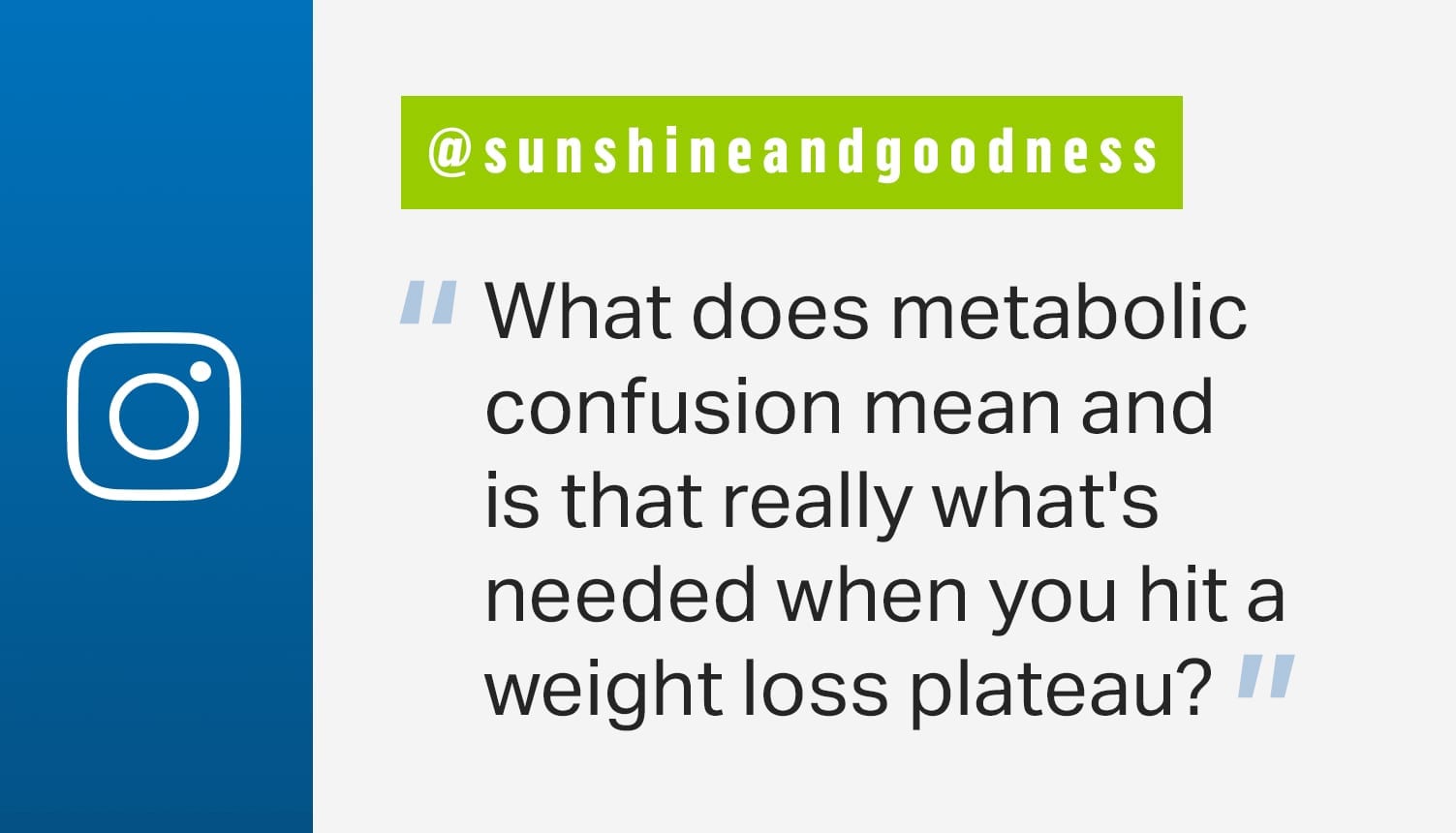
Metabolic confusion is based on the idea that varying calorie intake between higher and lower amounts may “confuse” the body and speed up metabolism, making weight loss easier. It is especially targeted toward those who may have experienced weight-loss plateaus or difficulty losing weight with other methods.
Not only does this seem to be the latest and greatest dietary fad (unsupported by science), but here are a few more reasons I wouldn’t recommend trying it:
1. IT’S MORE LIKELY TO DECREASE METABOLISM
There is simply no scientific evidence periods of high- and low-calorie intake can “fool” the body to increase your metabolism. In fact, if the caloric restriction period goes on for too long, you could actually cause your body to slow your metabolism. During periods of drastic calorie restriction, the body goes into survival mode (since it doesn’t know when energy from calories will be available) and the basal metabolic rate slows to conserve energy. This can negatively affect multiple bodily functions including cognition, fertility and make weight loss even harder.
2. IT IGNORES YOUR SET POINT WEIGHT
Set point theory is the notion our bodies have a predetermined weight baseline, based on our DNA and internal feedback mechanisms. In other words, the body has a specific weight, give or take a few pounds, which it prefers to be at. This might be different than the weight you want it to be due to the narrow standards touted by society and diet culture today.
When you experience a weight-loss plateau, it could just be the body fighting to stay where it naturally wants to be. If you’re trying hard to lose weight, you might need to rethink your approach to be more sustainable. That means giving up on fad diets like “metabolic confusion,” which call for drastic alternations between high- and low-calorie intake. Instead, focus on the bigger picture and prioritize a healthy, well-balanced diet that includes plenty of plant-based foods and regular movement, to ensure you can maintain weight loss and promote overall health.
3. IT RISKS DISORDERED EATING
A heavy emphasis on caloric intake and changing body size can lead to disordered eating habits. What’s more, following an eating pattern like this minimizes important internal cues related to eating — hunger, fullness, satisfaction and honoring cravings. If any type of dietary manipulation, including the one in question, is fostering an unhealthy relationship with food and your body, it is not worth doing. If any diet or eating plan is causing you stress, anxiety or shame, it’s time to take a step back and ask yourself why you’re doing it in the first place. Then, seek help from a knowledgeable registered dietitian who uses a “non-diet” approach where no foods are off-limits.
THE BOTTOM LINE
If a new diet or eating plan is promising quick weight loss, beware. Most often, these ideas aren’t coming from educated health and nutrition professionals, or reputable peer-reviewed literature. Always remember that if something sounds too good to be true, it probably is, and fad diets often lead to negative consequences like yo-yo dieting (further harming your metabolism).
Instead, there are lots of healthy behaviors that can have a positive impact on metabolism. Regular exercise (including strength training), eating a varied diet of primarily whole foods to fuel and nourish the body, sleeping well and managing stress are at the top of the list. If you’re worried about a weight-loss plateau, rearrange your health goals to focus more on behavioral changes, like eating more vegetables, cooking more at home, or increasing daily movement, as opposed to the number on the scale. When you do this, the health benefits are plentiful and weight often ends up where it should be for the long term.
Unlock an experience that’s like having a dietitian, trainer and coach — right at your fingertips. Go Premium for expert guidance and exclusive tools that will help you reach your personal health goals.




